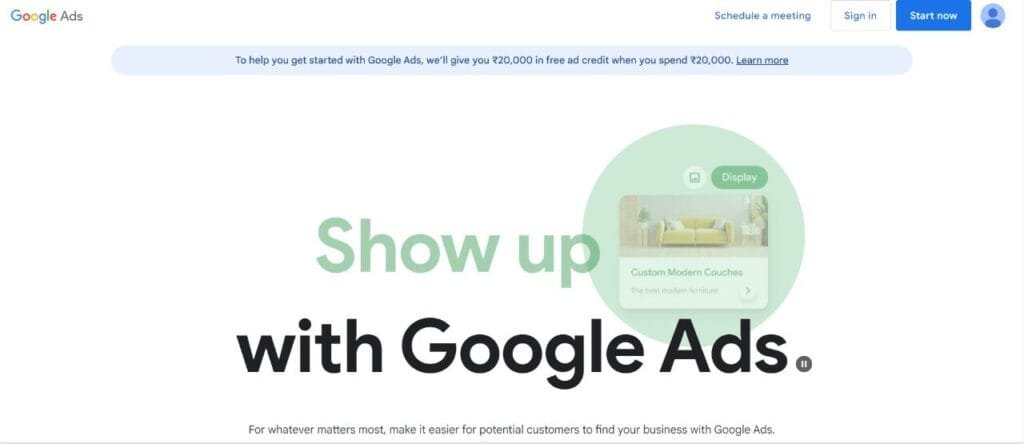This Article has been revised, edited and added to, by Poulomi Chakraborty.
- Navigating the Basics: SEO Essentials for Cruise Operators
- Crafting the Voyage: Content Strategy for Cruising
- SEO and Localized Cruising: Making Waves in Specific Markets
- Optimizing the Booking Experience: SEO Beyond Content
- Enhancing Website Usability and Speed
- Leveraging Behavioral Insights for Personalized Experiences
- Integrating Advanced Booking Technologies
- Building Trust Through Transparency and Security
- Utilizing SEO to Improve Booking Page Visibility
- Encouraging User-Generated Content and Reviews
- A Voyage Towards Optimized Conversions
- Digital Anchors: Link-building for Cruise Operators
- Visual Waves: Video SEO for Cruisers
- Cruising on Social Media: Social Signals in SEO
- Conclusion
Cruising, often synonymous with luxury and grandeur, evokes images of vast oceans, sprawling decks, gourmet meals, and breathtaking destinations. It’s an industry that’s experienced both storms and smooth sailing, and as the digital landscape becomes the primary marketplace for travel and tourism, cruise operators have had to anchor their strategies firmly in digital waters. Enter the realm of SEO – the compass guiding potential cruisers to their dream voyage.
Cruise operators, much like captains of old, must navigate the intricate waters of search engine optimization to ensure their majestic vessels are the first choice for vacationers. This isn’t just about positioning in search results; it’s about crafting a narrative that captures the essence of the cruising experience, drawing in both seasoned voyagers and first-time cruise-goers.
If you’re in the business of cruises or aim to set sail into this lucrative sector, this guide will chart out the SEO strategies tailored for success. Anchors aweigh!
Navigating the Basics: SEO Essentials for Cruise Operators

The journey of optimizing your cruise operation’s online presence begins with a deep understanding of SEO’s fundamental principles. This exploration is not just about adhering to best practices but strategically aligning them with your unique offerings to navigate through the digital seascape effectively.
Understanding the Core of SEO
At the heart of SEO lies the dual objective of enhancing your website’s visibility in search engine results while simultaneously providing a user experience that converts visitors into booking passengers. This dual objective requires a keen understanding of both technical SEO elements and the human elements of user engagement and content relevance.
Technical SEO: The Foundation of Your Digital Presence
Technical SEO encompasses the behind-the-scenes aspects that affect your site’s visibility. It involves ensuring your website is crawlable by search engine bots, has a mobile-friendly design, loads quickly, and features a secure connection. These are not just ranking factors; they’re essentials that ensure your website is accessible and trustworthy to both search engines and users. Dive deep into improving site speed, as even a second’s delay in page load time can significantly affect customer retention and engagement rates.
On-Page SEO: Crafting Content that Captures and Converts
On-page SEO is your control panel for influencing how your content is perceived by search engines and users. It involves optimizing elements like titles, meta descriptions, headers, and images to not only be rich in keywords but also compelling to the reader. The goal is to craft content that resonates with the searcher’s intent, answering their queries, and guiding them towards making a booking. This content must be crafted with an intimate understanding of your audience’s desires and pain points, offering them a glimpse into the luxurious, adventurous, or relaxing experiences awaiting them on your cruises.
Advanced Keyword Research: The Compass for Your Content Strategy
Advanced keyword research goes beyond finding popular search terms; it’s about uncovering the specific phrases and questions your target audience uses. Utilize tools and analytics to delve into the nuances of your audience’s search behavior, identifying not just high-volume keywords but long-tail phrases that signal strong purchase intent. For instance, rather than targeting broad terms like “cruise vacations,” hone in on specific queries such as “family-friendly Mediterranean cruise deals” or “luxury Arctic cruise adventures.” This precision not only improves your visibility but also attracts a more targeted, and thus likely to convert, audience.
Building Authority: Off-Page SEO and Quality Backlinks
Off-page SEO, particularly acquiring high-quality backlinks, is akin to receiving endorsements from other websites. It signals to search engines that your content is valuable, credible, and worthy of a higher ranking. Engage in strategic partnerships, guest blogging, and digital PR to earn these valuable links. Each backlink is a vote of confidence in your content, and the more reputable the source, the more weight it carries in your SEO efforts.
Measuring Success and Navigating Forward
Finally, the cornerstone of a successful SEO strategy is ongoing measurement and adaptation. Use analytics to track your site’s performance, understand user behavior, and identify areas for improvement. SEO is not a set-and-forget endeavor; it’s a continuous journey that requires adaptation to changing search algorithms, market trends, and customer behaviors.
By expanding your SEO strategy beyond the basics and into these advanced territories, you’re not just chasing rankings; you’re building a comprehensive digital presence that captures the essence of your cruise offerings, engages your target audience, and guides them towards embarking on a journey with you. Remember, in the vast ocean of online content, strategic and thoughtful SEO practices are your most reliable compass.
Crafting the Voyage: Content Strategy for Cruising

In the digital era, content is the beacon that guides potential customers to your cruise line. A well-crafted content strategy not only illuminates the unique value of your offerings but also connects emotionally with your audience, setting the stage for their journey from discovery to booking.
Embarking on a Content Journey
A strategic content journey involves understanding your audience’s needs and crafting stories that not only inform and entertain but also inspire action. Your content should serve as a digital compass, guiding visitors through the myriad options and experiences your cruise line offers.
Unveiling Destinations with a Storyteller’s Touch
The allure of destinations can be significantly magnified when presented through compelling narratives. Don’t just list the features of a destination; weave stories around them. Share tales of ancient ruins, sunset sails, local cuisine, and cultural festivals. Employ vivid imagery and sensory details to transport readers directly to these locales, making them feel the excitement and wonder of exploration. Use this storytelling approach to highlight lesser-known gems and exclusive excursions, distinguishing your offerings from competitors.
Onboard Experiences: Beyond Amenities
When detailing onboard experiences, move beyond mere lists of amenities. Share the stories behind your gourmet dishes, the inspiration for your spa treatments, or the expertise of your entertainment. Create content that offers a glimpse into the day-to-day life on board, perhaps through diary entries of past cruisers or behind-the-scenes looks at ship operations. This inside view not only enriches the potential cruiser’s understanding of your luxury but also builds a deeper emotional connection.
Diving Deeper with Themed Content
Themed cruises represent a unique opportunity to target specific interests, and your content should mirror this specialization. For a culinary cruise, detail your onboard chefs’ backgrounds, the sourcing of local ingredients for exclusive dinners, or the story of a particular dish’s significance. For wildlife or adventure-themed cruises, collaborate with experts to create educational content that enhances the anticipation of the experience.
Engaging Niche Audiences
To effectively reach and engage niche markets, your content must speak directly to their passions. Utilize targeted SEO strategies to ensure your themed content appears in the search results of those expressly seeking these experiences. Collaborate with influencers within these niches to create authentic and compelling content that resonates strongly with their followers.
Charting a Course with Localized Content
Crafting content with a local perspective not only aids in attracting cruisers from specific regions but also enhances the relevance of your offerings to diverse audiences. For instance, content aimed at the Asian market might include guides on celebrating regional festivals onboard or articles about Asian culinary traditions reflected in your dining options.
Embracing Multilingual Content
In the realm of cruising, the world is your audience. Offering content in multiple languages is not merely about translation; it’s about cultural adaptation. Ensure your content resonates with the cultural nuances and preferences of each audience segment. This approach broadens your reach and makes your cruise line more accessible and appealing to a global audience.
Steering Through the Digital Seascape with Innovative Content
In the digital age, content goes beyond text. Embrace innovative formats like 360-degree ship tours, virtual reality experiences of destinations, or live Q&A sessions with cruise directors. These immersive experiences not only enhance your content’s appeal but also its shareability, extending your digital footprint.
A Voyage of Continuous Discovery
A successful content strategy for cruise operators is an ongoing voyage of discovery, creativity, and connection. It requires a deep understanding of your audience, a commitment to storytelling, and a willingness to explore new digital horizons. By crafting content that captivates and engages, you chart a course for your cruise line that leads not just to higher search engine rankings but to the hearts of your future passengers.
SEO and Localized Cruising: Making Waves in Specific Markets

The world of cruising is as diverse as it is expansive, encompassing a range of destinations, cultures, and preferences. In recognizing this diversity, cruise operators must adapt their SEO strategies to resonate with specific markets. Localized SEO is not just about translating content; it’s about tailoring your online presence to feel native to different audiences, ensuring that when potential cruisers in various regions search for their next vacation, your cruises stand out as the perfect fit.
Navigating Local Preferences with Precision
Understanding and integrating local preferences into your SEO strategy requires a deep dive into the cultural and regional specifics that influence travel decisions. This understanding can shape everything from the featured destinations and available amenities to the way you communicate your offerings.
Tailoring Content to Regional Tastes
Start by creating content that reflects the interests and preferences of cruisers from specific regions. For example, while European cruisers may prioritize cultural and historical excursions, Asian cruisers might show a greater interest in culinary experiences or high-tech onboard amenities. This tailored content should extend to all aspects of your digital presence, from your website to social media platforms, ensuring a seamless and engaging user experience for each market segment.
Language Optimization: Beyond Translation
Effective localization goes beyond merely translating your content into another language. It involves adapting your message to capture the nuances and subtleties of each language, ensuring it resonates with the local audience. This process includes keyword research in each language to understand the specific terms and phrases potential customers use when searching for cruise options.
Cultural Nuances in SEO
Incorporate cultural nuances into your SEO strategy to further connect with local markets. This could mean highlighting local holidays, festivals, or events in your content or offering special promotions that align with local customs. For instance, a cruise line targeting the Japanese market might highlight cherry blossom season cruises, incorporating traditional Japanese aesthetics into their marketing materials.
Engaging with Local Communities Online
Engagement with local communities and influencers can significantly enhance your localized SEO efforts. Collaborate with local travel bloggers, influencers, and tourism boards to create content that highlights the benefits of cruising from local ports or exploring specific destinations. Such partnerships not only provide valuable backlinks but also increase your visibility among local audiences.
Leveraging Local Events and Festivals
Incorporate local events, festivals, and holidays into your content calendar to capitalize on increased search interest during these times. This approach not only boosts your SEO but also demonstrates your cruise line’s commitment to celebrating and respecting local cultures.
Optimizing for Local Search
A key component of localized SEO is ensuring your cruise line appears in local search results. This involves optimizing your website for “near me” searches and ensuring your listings in local directories and Google My Business are up-to-date. Tailor your SEO efforts to capture the attention of those looking for cruise options departing from or arriving at nearby ports.
Utilizing Local Keywords
Integrate local keywords into your website and content, such as the names of cities, ports, and popular landmarks associated with your cruises. This strategy helps attract searchers looking for cruise experiences that begin or end in their vicinity or offer excursions to places they find appealing.
Charting a Course for Localized Success
Localized SEO for cruise operators is about much more than simply making your content available in different languages. It’s about crafting an online experience that feels personally tailored to each market segment you wish to reach. By understanding and integrating the cultural, linguistic, and regional specifics of your target markets into your SEO strategy, you can make significant inroads into local communities, ensuring that your cruise line is not just seen but also embraced as the go-to choice for cruisers around the globe. This tailored approach not only elevates your brand in specific markets but also significantly enhances your overall online visibility and booking conversions.
Optimizing the Booking Experience: SEO Beyond Content

In the competitive landscape of the cruise industry, optimizing the booking experience transcends traditional SEO practices, focusing on the user journey from discovery to conversion. This optimization ensures that potential cruisers not only find your offerings but are also guided smoothly through the booking process, minimizing friction and maximizing conversions. This approach requires a blend of technical, psychological, and user experience (UX) strategies to create a seamless path to booking.
Enhancing Website Usability and Speed
Your website’s usability and speed are the gateways to a frictionless booking experience. A well-designed, intuitive website that loads quickly on all devices sets the stage for positive user interactions. Focus on streamlining navigation, ensuring that information about cruises, destinations, and booking options is easily accessible. Implement technical optimizations to improve page load times, recognizing that even a second’s delay can lead to potential customers abandoning their booking journey.
Leveraging Behavioral Insights for Personalized Experiences
Utilize behavioral insights gathered from your website analytics to create personalized user experiences. By understanding how different segments of your audience interact with your site, you can tailor the booking process to meet their specific needs and preferences. This could involve customizing the content displayed based on their browsing history or sending targeted email campaigns that resonate with their interests, encouraging them to complete their booking.
Integrating Advanced Booking Technologies
Incorporate advanced booking technologies that simplify the path to purchase. Features like real-time availability checks, virtual cabin tours, and easy-to-use date selection calendars enhance the user experience. Additionally, integrating chatbots or live chat services can provide immediate assistance to users, answering questions and guiding them through the booking process, further reducing barriers to conversion.
Building Trust Through Transparency and Security
Trust is a critical component of the booking experience. Ensure that your website clearly communicates the security measures in place to protect personal and payment information. This includes utilizing secure sockets layer (SSL) encryption and displaying trust seals from recognized security providers. Transparency about pricing, cancellation policies, and what’s included in a cruise package also plays a significant role in building trust with potential customers.
Utilizing SEO to Improve Booking Page Visibility
While SEO is often associated with content, it’s equally important in optimizing your booking pages for search engines. Strategic integration of keywords related to booking a cruise, such as “book a Caribbean cruise online,” can enhance the visibility of these pages in search results. However, it’s crucial to balance keyword use with natural language to ensure the text remains engaging and informative for users.
Encouraging User-Generated Content and Reviews
User-generated content and reviews are powerful tools for enhancing SEO and building credibility. Encourage satisfied customers to share their experiences and reviews on your website and social media platforms. Featuring positive reviews prominently on your booking pages can serve as social proof, influencing others to proceed with their bookings.
A Voyage Towards Optimized Conversions
Optimizing the booking experience for cruise operators involves a holistic approach that extends beyond content and keywords. It requires an understanding of the technical aspects that improve site performance, the UX design principles that enhance usability, and the psychological strategies that influence decision-making. By focusing on creating a seamless, engaging, and trustworthy path to booking, cruise operators can not only improve their SEO performance but also significantly increase their conversion rates, ensuring their vessels are filled with eager travelers ready to embark on their next adventure.
Digital Anchors: Link-building for Cruise Operators
In the vast ocean of the internet, link-building serves as a critical strategy for cruise operators seeking to enhance their SEO and increase their site’s authority. This process, akin to setting down digital anchors in the sea of online content, helps to stabilize and elevate your website’s ranking in search engine results. However, effective link-building in the cruise industry requires a nuanced approach, focusing on quality, relevance, and strategic partnerships.
Cultivating High-Quality Backlinks
Securing high-quality backlinks from reputable sources is akin to receiving endorsements from the maritime authorities of the digital world. These links signal to search engines that your content is valuable, credible, and worthy of being ranked highly. Focus on establishing connections with authoritative travel blogs, renowned tourism sites, and respected industry publications. The process involves crafting compelling, unique content that these sites are eager to link to, whether it be in-depth guides, insightful industry analysis, or captivating narratives of sea voyages.
Strategic Partnerships and Collaborations
Partnerships and collaborations are the compasses that direct mutual growth in the digital sphere. Forge relationships with travel agencies, local tourism boards, and other businesses in the travel and hospitality sector. By creating content that benefits both your cruise line and your partners, such as co-authored travel guides or joint marketing campaigns, you can secure valuable backlinks and broaden your reach. These partnerships not only enhance your link profile but also open new channels for potential customers to discover your offerings.
Leveraging Nautical Influencers and Bloggers
Influencers and bloggers within the cruise and travel niches act as the captains of online narratives, guiding their followers through the vast array of travel options. Collaborate with these digital captains to create content that showcases the unique experiences your cruise line offers. Whether through sponsored posts, guest blogging opportunities, or hosted cruises for content creation, these collaborations can result in high-quality backlinks and increased visibility among engaged audiences.
Engaging in Cruise Directories and Forums
Cruise directories and forums are the digital maps where many potential travelers begin their journey. Ensuring your cruise line is listed in these online resources can provide direct backlinks and improve your visibility to a targeted audience. Participate actively in forums, offering expert advice and insights. This not only builds your reputation but also creates opportunities for organic link creation as users share and reference your contributions.
Local Port Websites and Tourism Platforms
Collaborating with local port websites and regional tourism platforms can anchor your online presence in specific geographical areas. These sites are often sought after by travelers planning their journeys, making them valuable sources of backlinks. By featuring your cruises on these platforms, you can attract passengers looking for voyages departing from or arriving at nearby ports, while also benefiting from the local SEO advantages these links provide.
Setting Sail with Strategic Link-Building
In the competitive seascape of the cruise industry, strategic link-building is essential for navigating towards success. By focusing on cultivating high-quality backlinks, engaging in strategic partnerships, leveraging the influence of nautical bloggers, participating in online cruise communities, and anchoring your presence on local port websites, you set the course for enhanced visibility and authority. This multifaceted approach to link-building not only improves your SEO rankings but also connects your brand with wider audiences, guiding more potential cruisers to embark on journeys with your fleet.
Visual Waves: Video SEO for Cruisers

In today’s digital age, the power of video cannot be underestimated, especially for cruise operators looking to captivate potential travelers. Video content not only enriches your online presence but, when optimized for search engines, can significantly enhance your visibility and engagement.
Crafting Compelling Maritime Narratives
The foundation of effective video content lies in storytelling. For cruise operators, this means weaving narratives that transport viewers from their screens to the decks of your ships, the exotic locales you visit, and the unforgettable experiences you offer. Create videos that tell stories about your destinations, showcase day-to-day life aboard your ships, and highlight unique offerings such as culinary adventures or onboard entertainment. The goal is to make viewers feel as though they’re already part of the journey, enticing them to make it a reality.
Optimizing Video Content for Search Engines
Video SEO is crucial for ensuring your content reaches its intended audience. Start with keyword-rich titles and descriptions that accurately reflect the content of your videos while also aligning with terms your target audience is searching for. Incorporating relevant keywords helps your videos rank not only in search engines but also on video hosting platforms like YouTube. Additionally, use tags wisely to categorize your content, making it more discoverable to interested viewers.
Enhancing Engagement Through Visuals
The visual aspect of your videos should be as captivating as the stories they tell. High-quality footage, engaging thumbnails, and seamless editing all contribute to a viewer’s decision to watch your video and, more importantly, share it. Investing in drone footage of ships at sea or 360-degree tours of ship interiors can provide an immersive experience that static images simply cannot match. Remember, the more engaging your content, the higher the likelihood of it being shared, increasing your visibility and backlink potential.
Utilizing Customer Testimonials and User-Generated Content
Customer testimonials and user-generated content (UGC) are gold mines for video SEO. Encourage guests to share their cruise experiences through video reviews or travel vlogs. Featuring this content on your channels not only provides authentic perspectives on your offerings but also contributes to your content’s credibility and relatability. Moreover, these real-life experiences are more likely to resonate with potential cruisers, acting as powerful endorsements of your brand.
Distributing Video Content Across Channels
To maximize the reach and impact of your video content, distribute it across multiple channels. While YouTube is the second largest search engine and a critical platform for video SEO, don’t overlook the potential of embedding videos on your website, sharing them on social media platforms, and including them in email marketing campaigns. Each channel offers unique advantages for engagement and visibility, contributing to a holistic online presence that attracts and captivates potential cruisers.
Sailing Towards Enhanced Visibility with Video SEO
For cruise operators, video content is not just about showcasing the beauty of the seas and the allure of cruise travel; it’s a strategic tool for enhancing online visibility and engagement. By crafting compelling stories, optimizing video content for search engines, engaging viewers with high-quality visuals, leveraging authentic testimonials, and distributing content across multiple channels, you set sail toward a digital presence that not only ranks higher in search results but also captures the hearts of travelers around the globe.

Related: Check out our free SEO suite

Cruising on Social Media: Social Signals in SEO
In the digital marketing odyssey, social media is the wind in the sails of your SEO strategy. For cruise operators, social media platforms offer a sea of opportunities to engage with audiences, amplify content, and enhance brand visibility.
Charting a Course on Social Media Platforms
The first step in leveraging social media for SEO is to select the right platforms. While Instagram and Pinterest are visually driven platforms ideal for showcasing the stunning visuals of cruise travel, Facebook and Twitter offer broader engagement opportunities, including customer service interactions, feedback, and community building. LinkedIn can be instrumental for B2B marketing, targeting corporate clients for business conferences or retreats aboard your ships. Each platform offers unique tools and audience demographics, necessitating a tailored approach to content and engagement.
Navigating the Tides of Content Creation
Content on social media should be engaging, shareable, and, most importantly, aligned with your brand’s voice and the interests of your target audience. Use high-quality images, videos, and compelling narratives to tell the story of your cruises, destinations, and onboard experiences. Live videos, virtual tours, and Q&A sessions can further engage viewers, offering them a glimpse into the cruising lifestyle and inviting interaction. Regularly posting content that resonates with your audience not only fosters engagement but also encourages sharing, amplifying your visibility and social signals back to search engines.
Anchoring Your Presence with Hashtags and Collaborations

Hashtags serve as beacons, guiding users to your content amidst the vast ocean of social media. Use relevant, researched hashtags to increase the discoverability of your posts. Collaborating with travel influencers and content creators can also propel your content to new audiences. Influencers can provide authentic endorsements, share their experiences with your brand, and generate content that highlights the uniqueness of your offerings, all contributing to increased engagement and stronger social signals.
Engaging with the Crew and Passengers
Social media is not just a broadcasting channel; it’s a two-way communication platform. Engage with your followers by responding to comments, participating in conversations, and even sharing user-generated content. This engagement not only builds a community around your brand but also signals to search engines the relevance and popularity of your content. Encouraging satisfied cruisers to share their experiences and tag your brand can further enhance these social signals, providing authentic testimonials to prospective travelers.
Measuring the Nautical Miles
To navigate successfully, you must measure the effectiveness of your social media strategy. Use analytics tools provided by social media platforms to track engagement metrics, such as likes, shares, comments, and the growth of your follower base. These insights can help refine your content strategy, targeting efforts, and engagement practices, ensuring that your social media efforts contribute positively to your SEO objectives.
Setting Sail with Social Media in Your SEO Strategy
Integrating social media into your SEO strategy offers cruise operators a powerful way to connect with audiences, amplify their content, and enhance their online visibility. By choosing the right platforms, creating resonant content, leveraging hashtags and collaborations, actively engaging with your online community, and measuring your impact, you can harness the power of social signals to improve your SEO performance. As the digital landscape continues to evolve, so too should your strategy, ensuring that your cruise line remains a sought-after destination in the vast and competitive sea of online travel.
Conclusion
Navigating the digital waves of the cruise industry demands both a steady hand and an innovative spirit. As the world continues to merge the realms of traditional travel exploration with the vast, uncharted territories of the online universe, cruise operators stand at the helm of an exciting journey. By harnessing the power of SEO – from the basics of content creation and link-building to the nuances of AI and personalization – operators can not only reach their target audience but can also craft unforgettable experiences, even before passengers set foot on board.
The digital seascape is vast, but with the right strategies, tools, and adaptability, cruise operators can sail ahead of the competition, ensuring their offerings shine brightest in the vast ocean of online opportunities. As with any voyage, the journey of SEO is continuous, filled with learning, adaptation, and growth.
Read Next




















